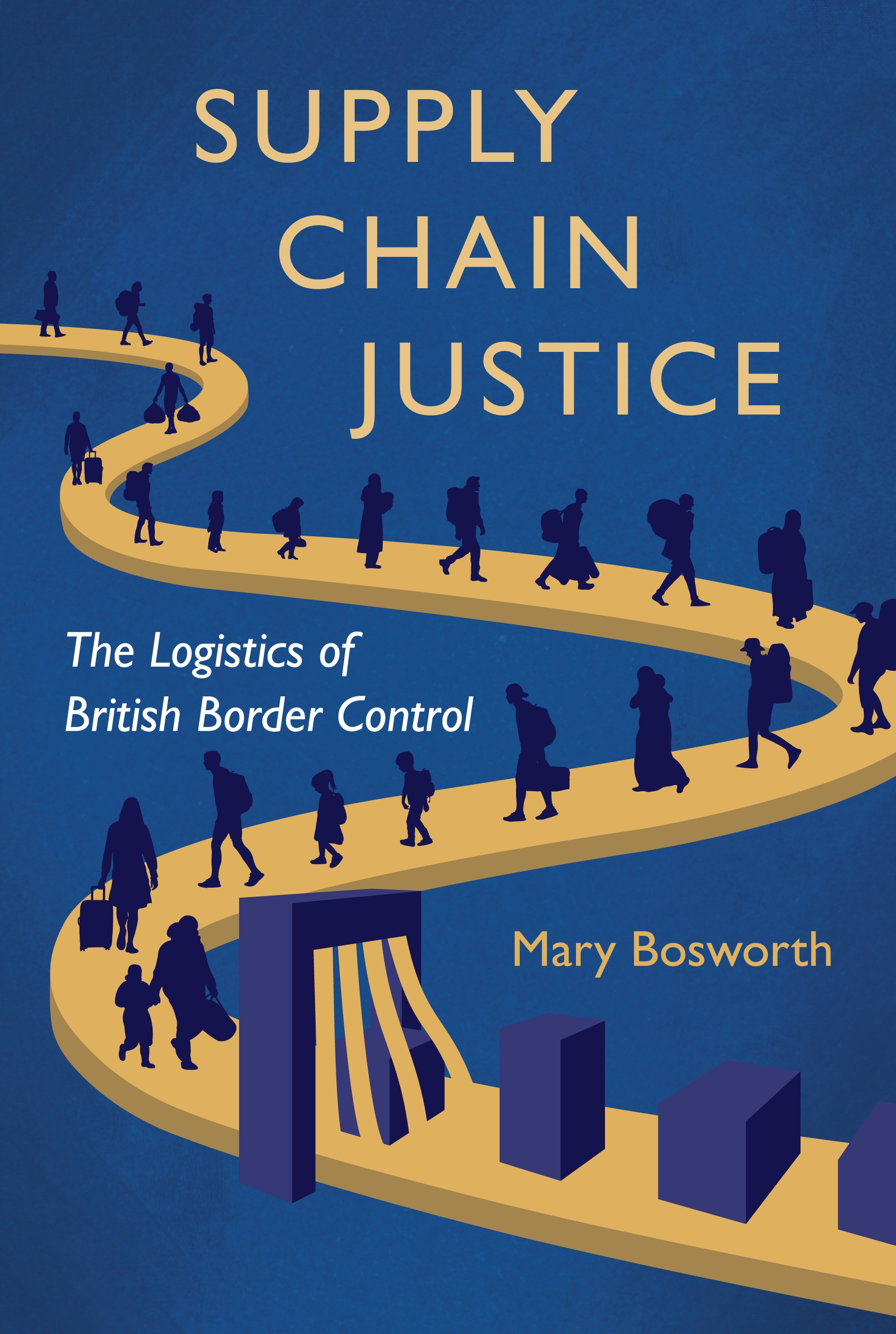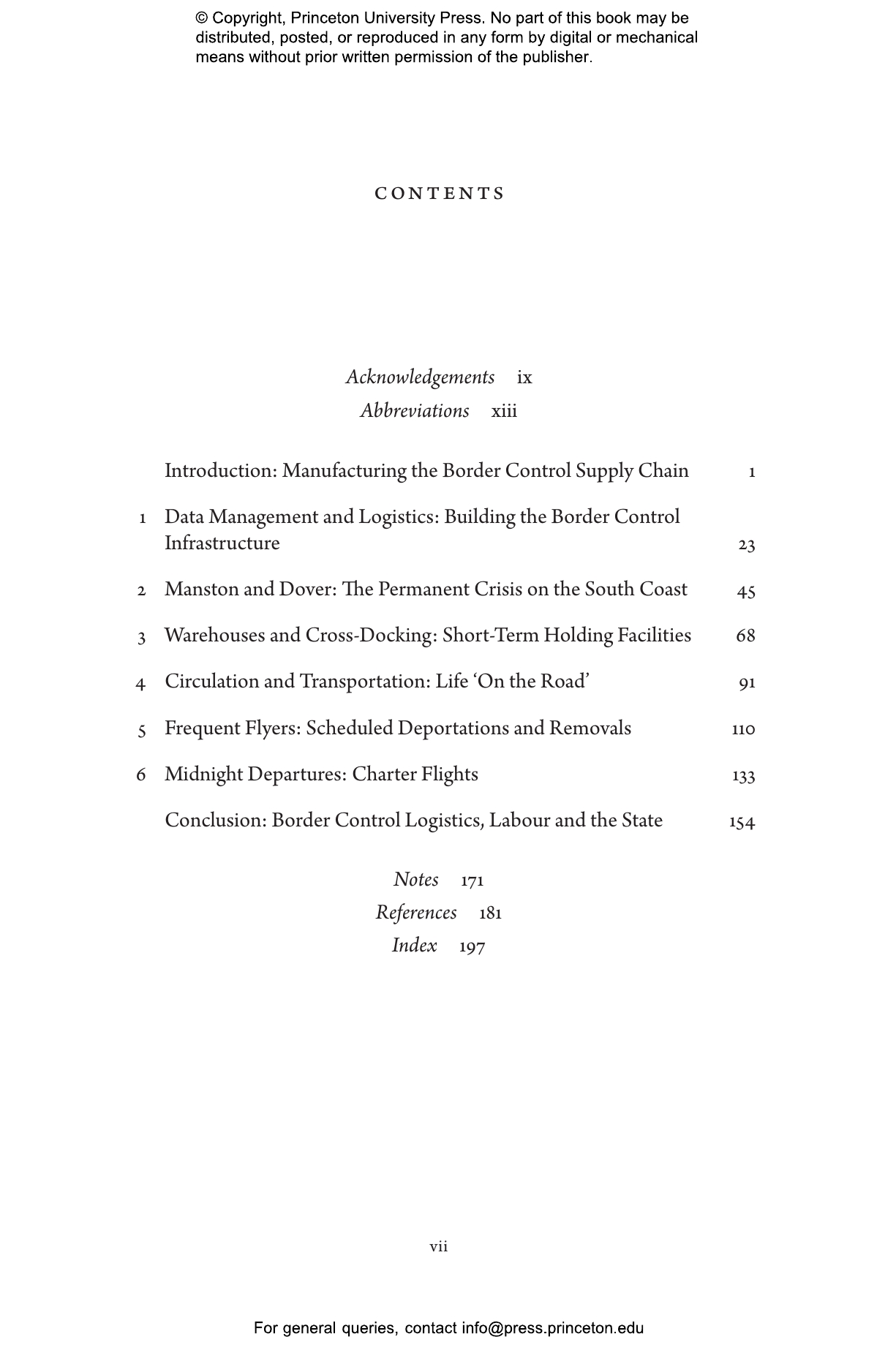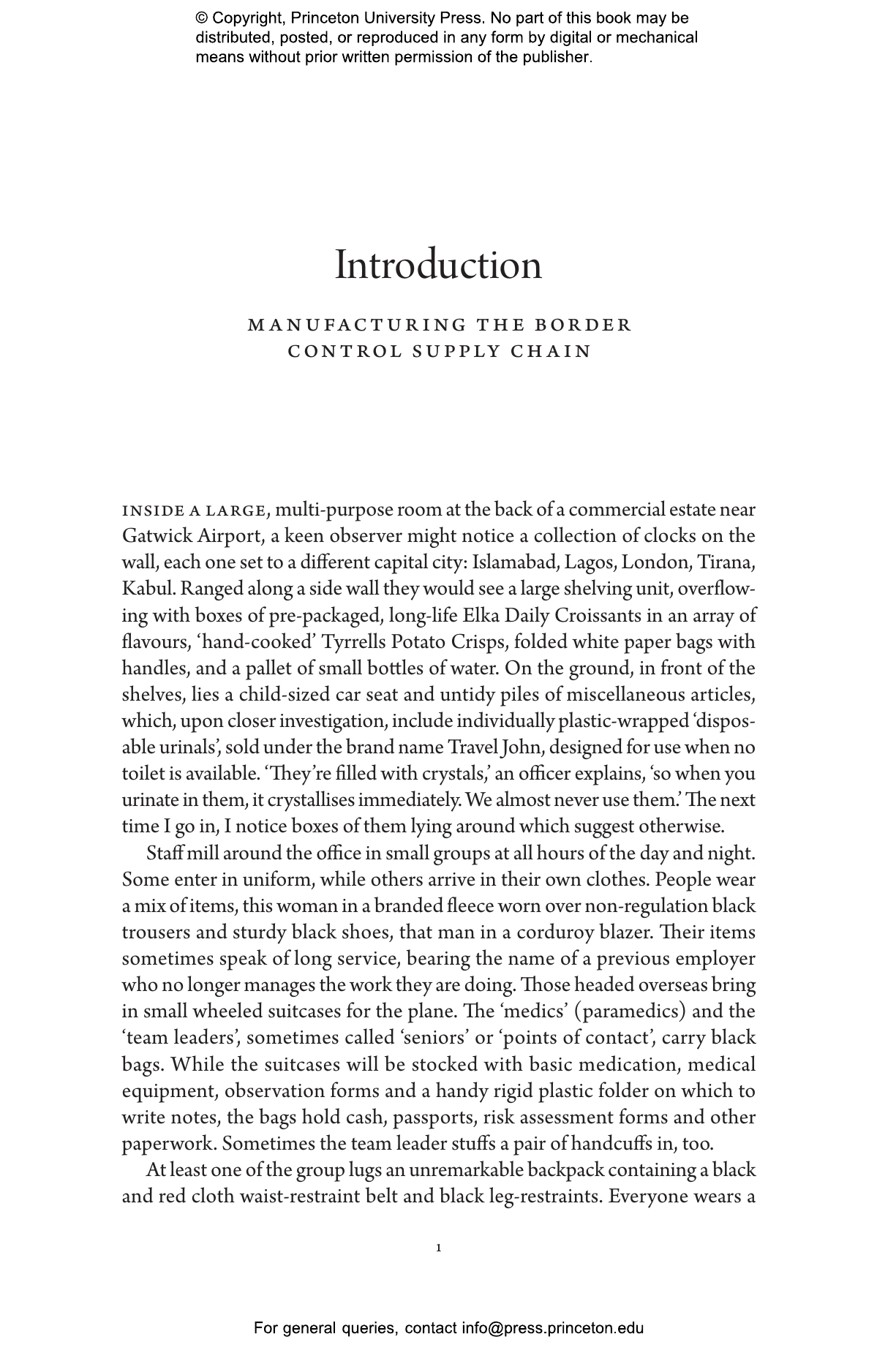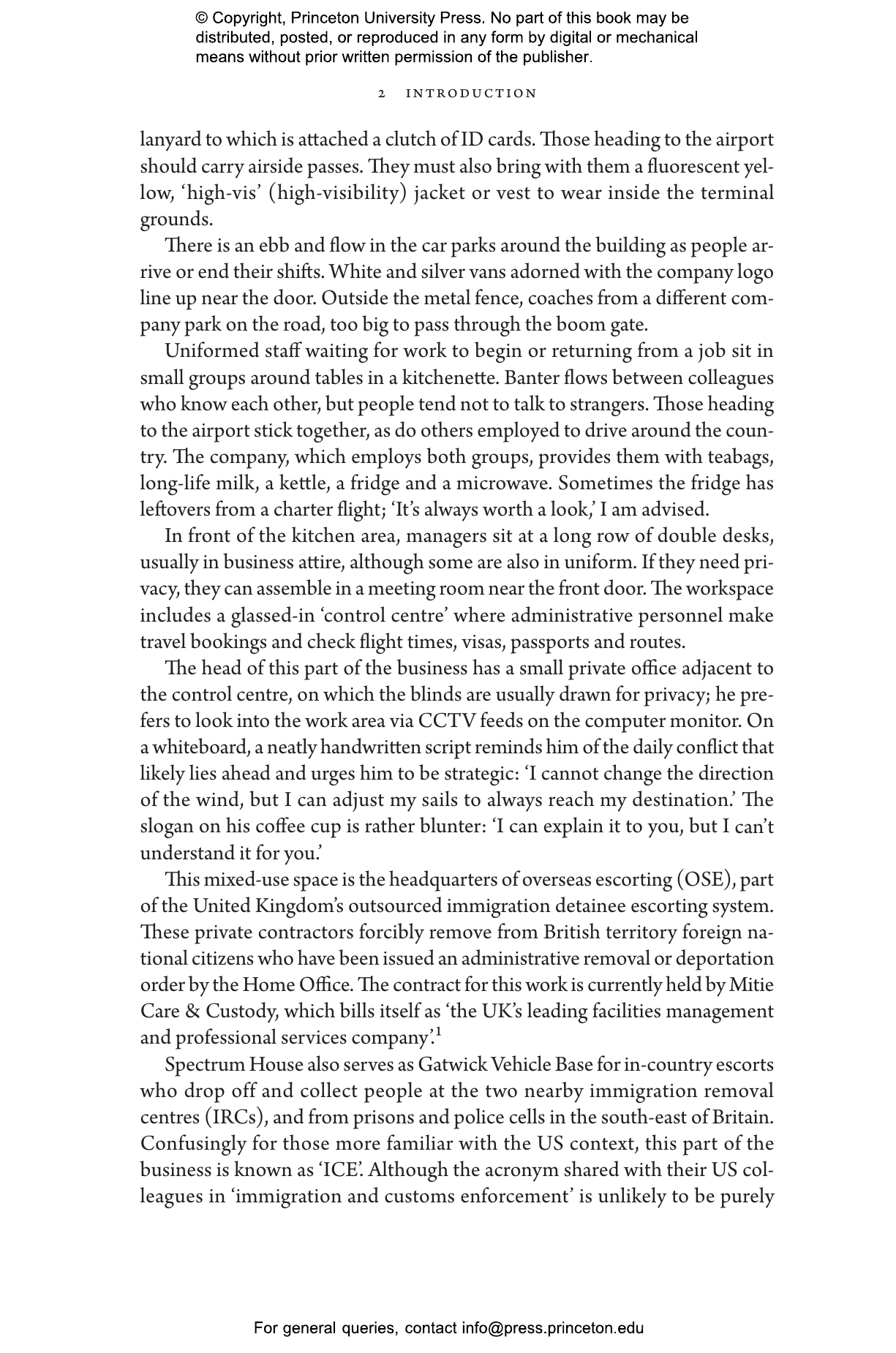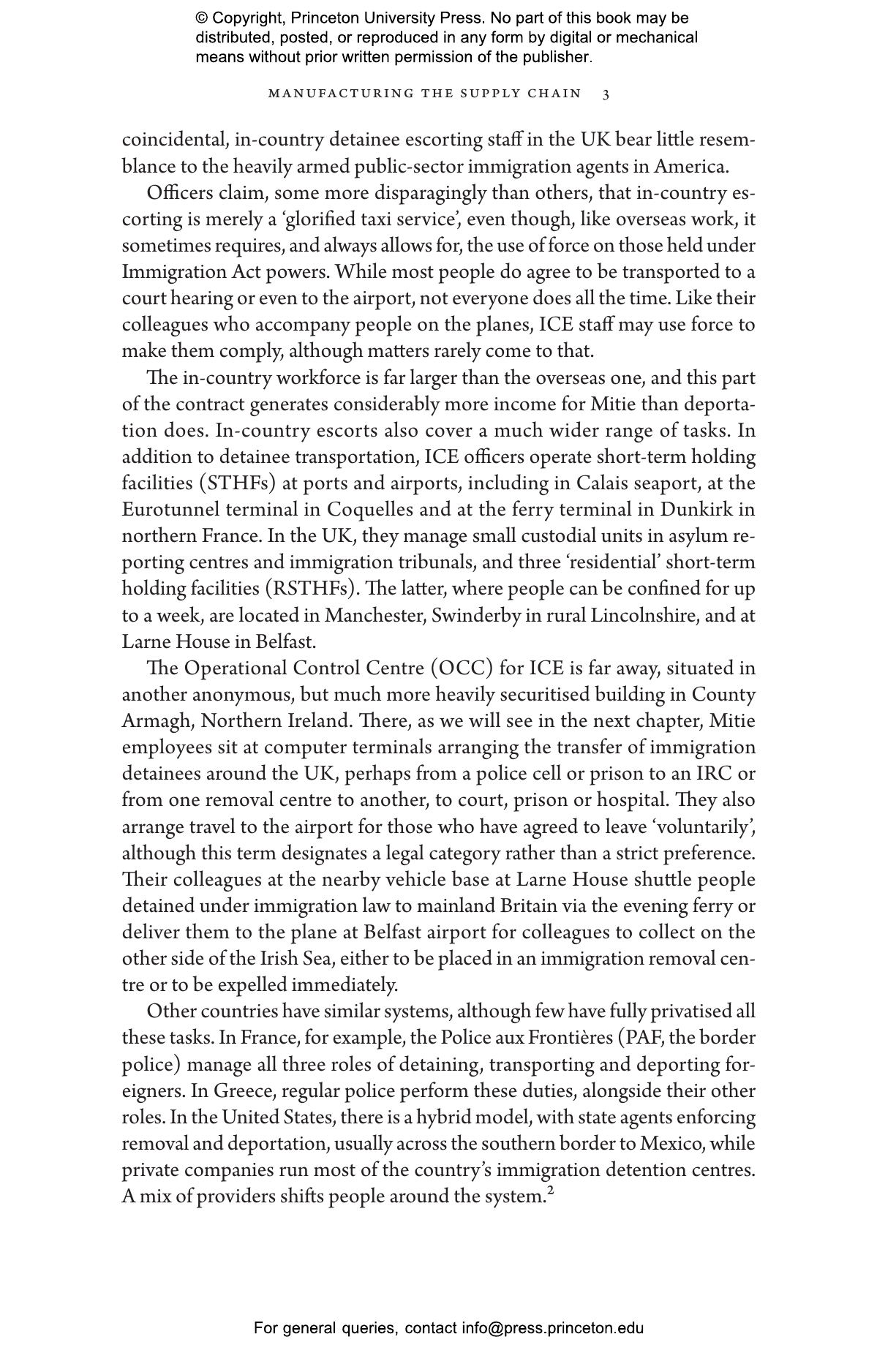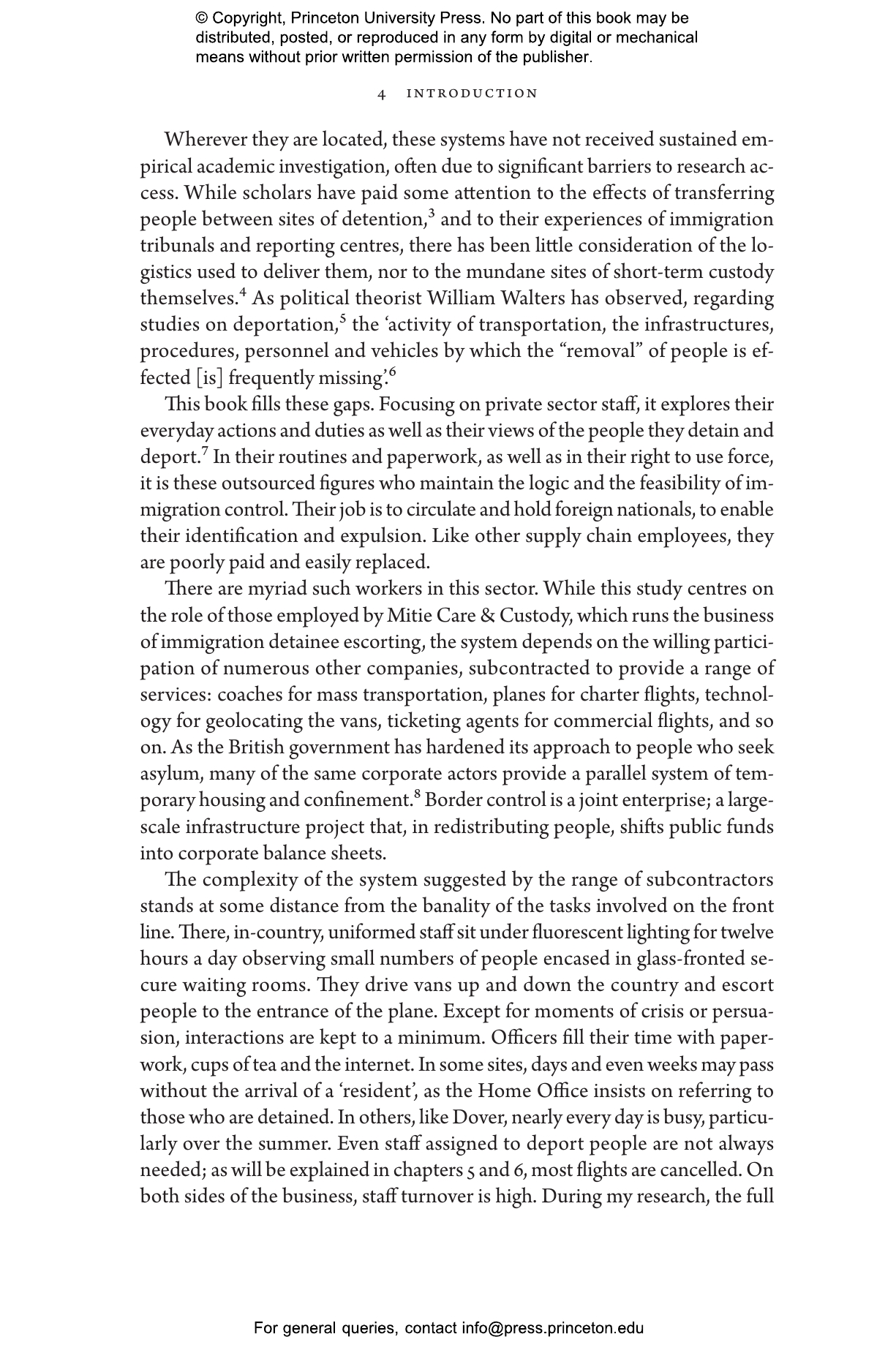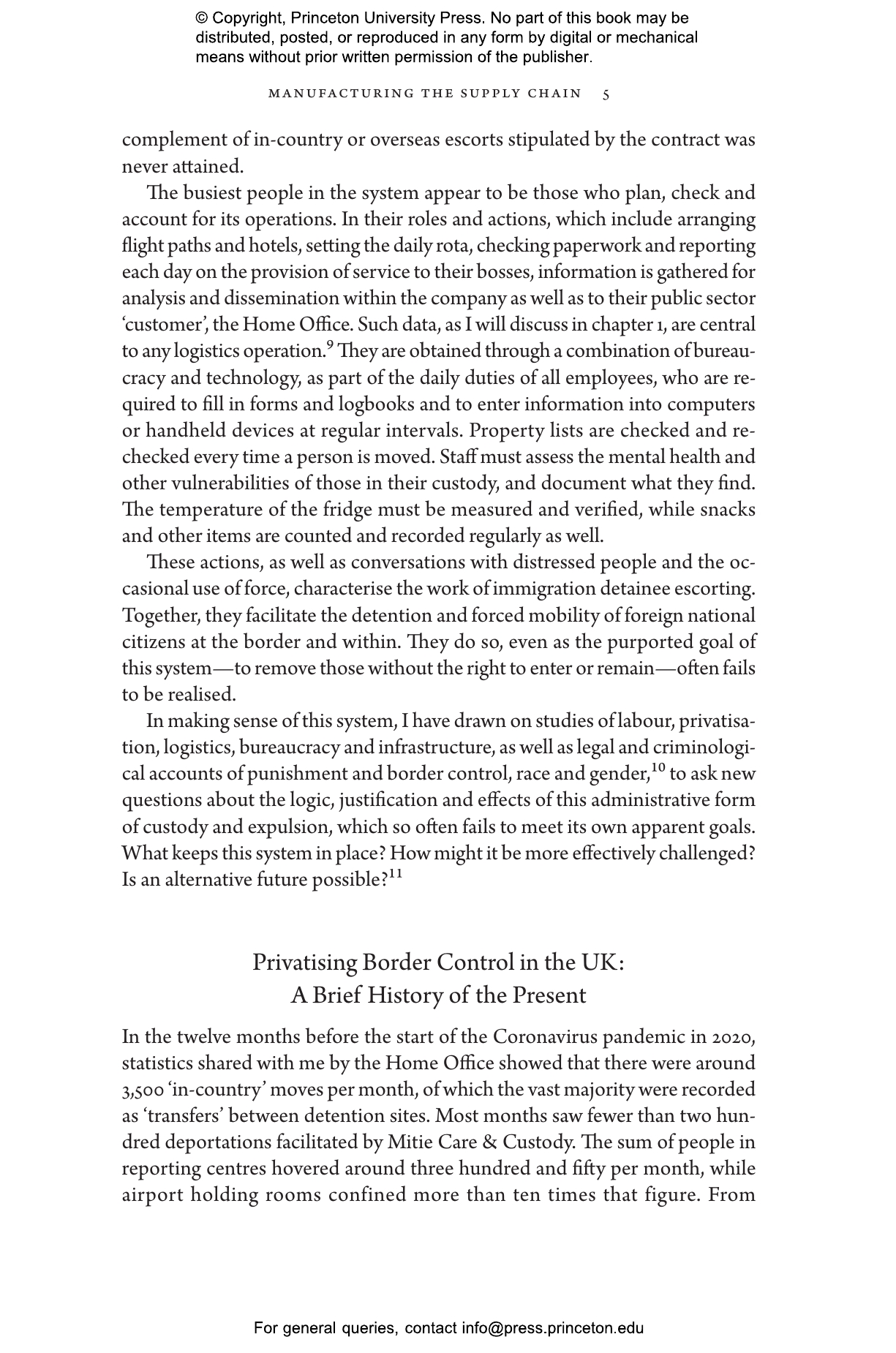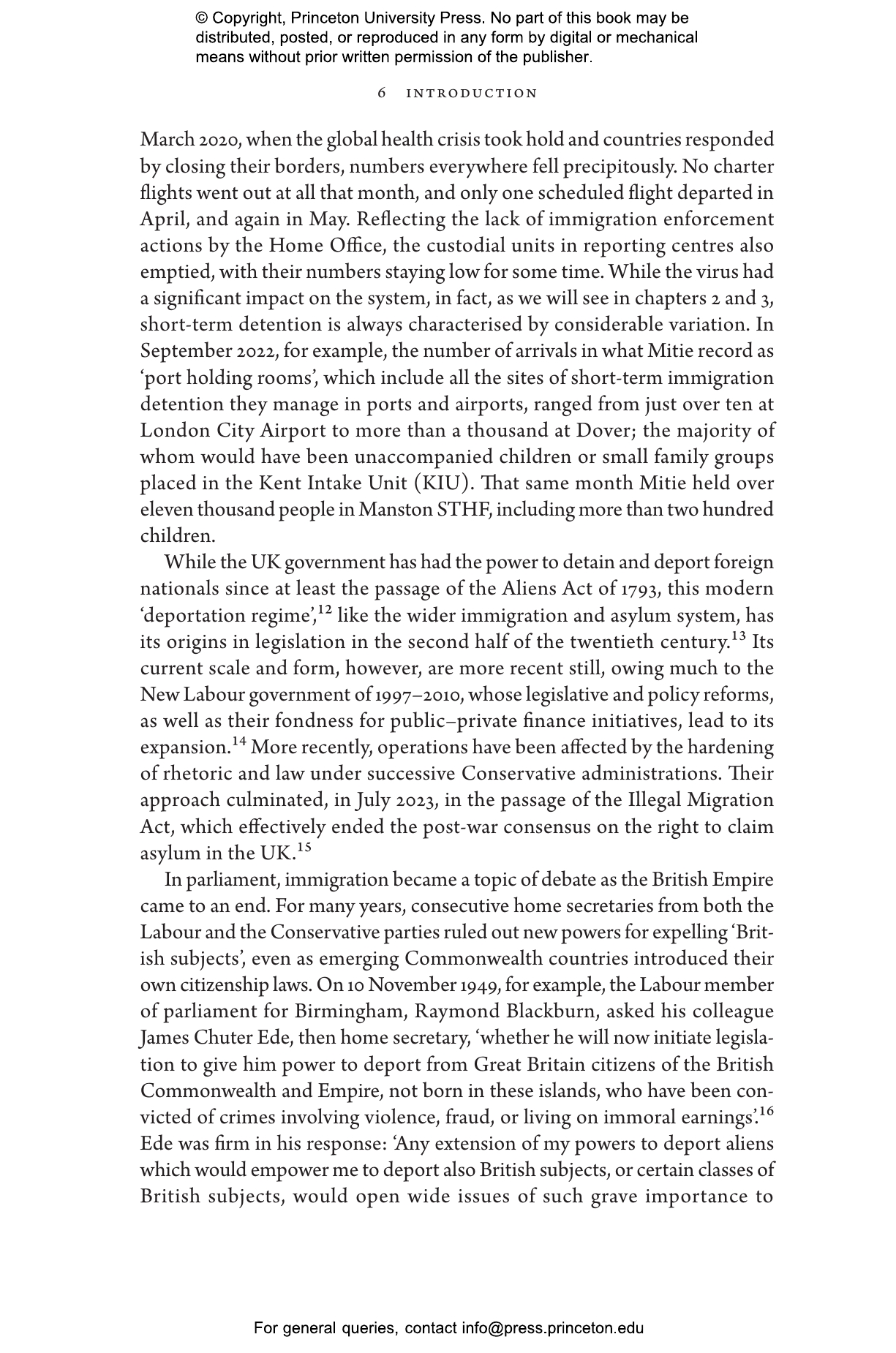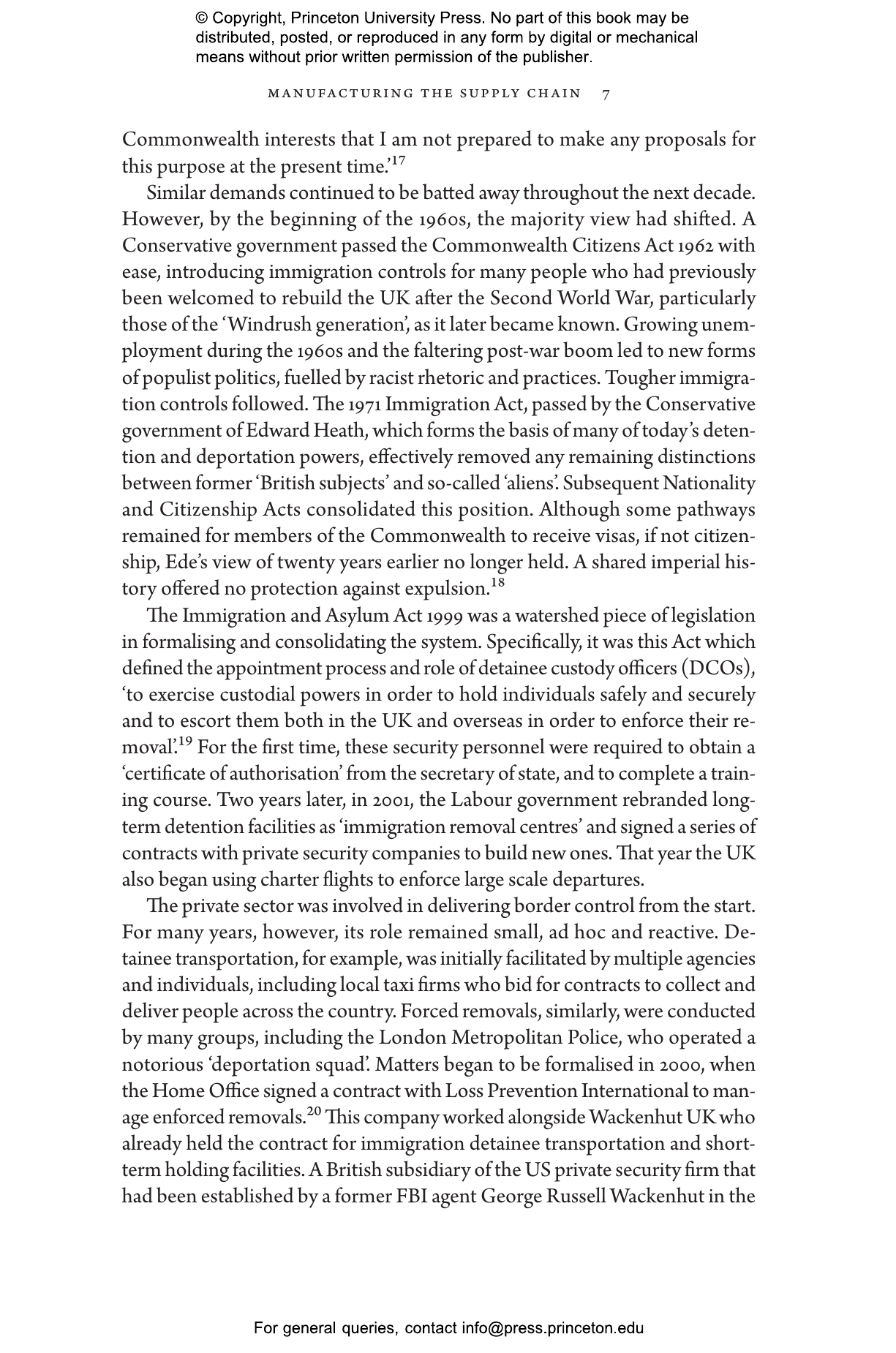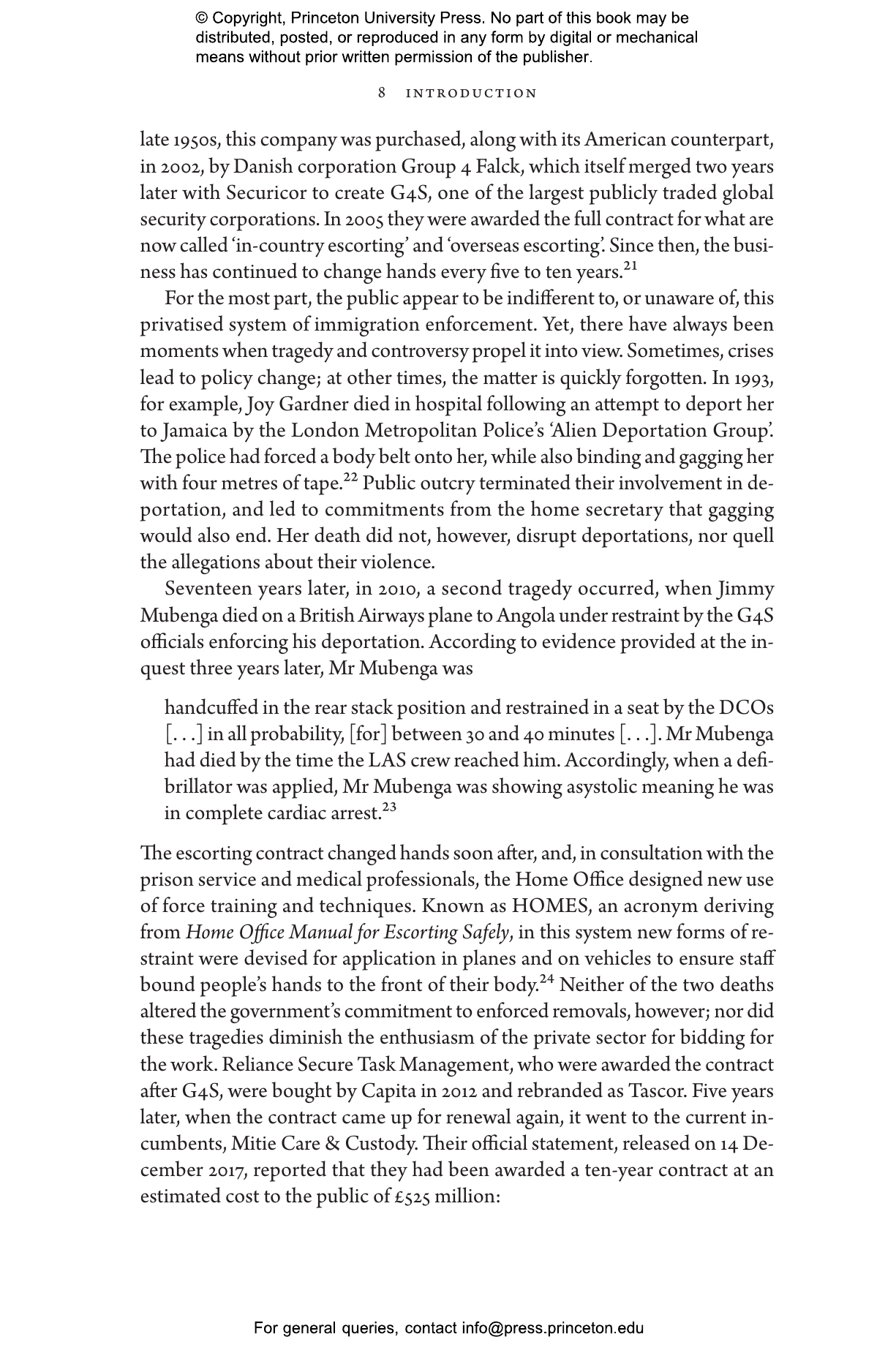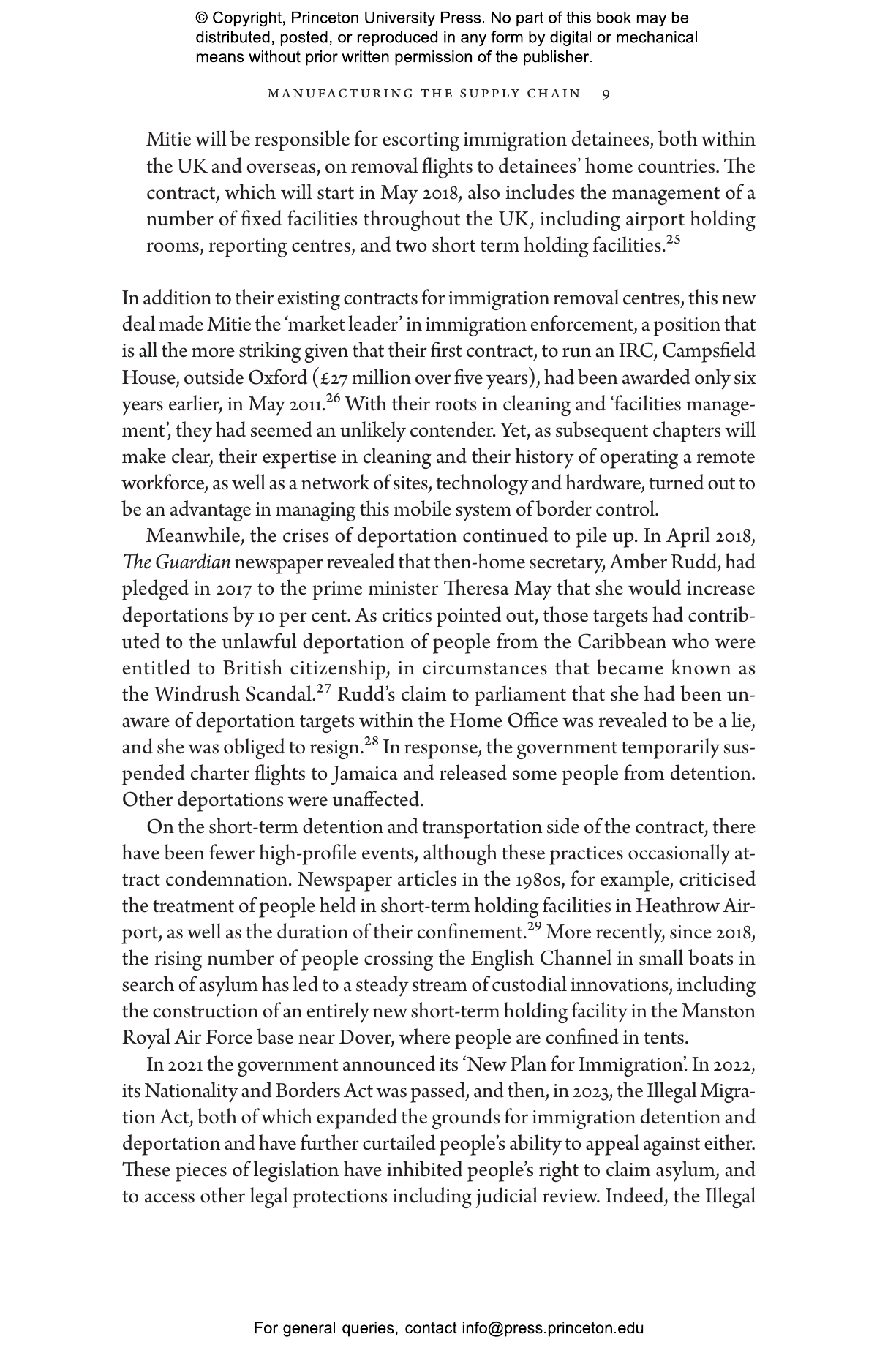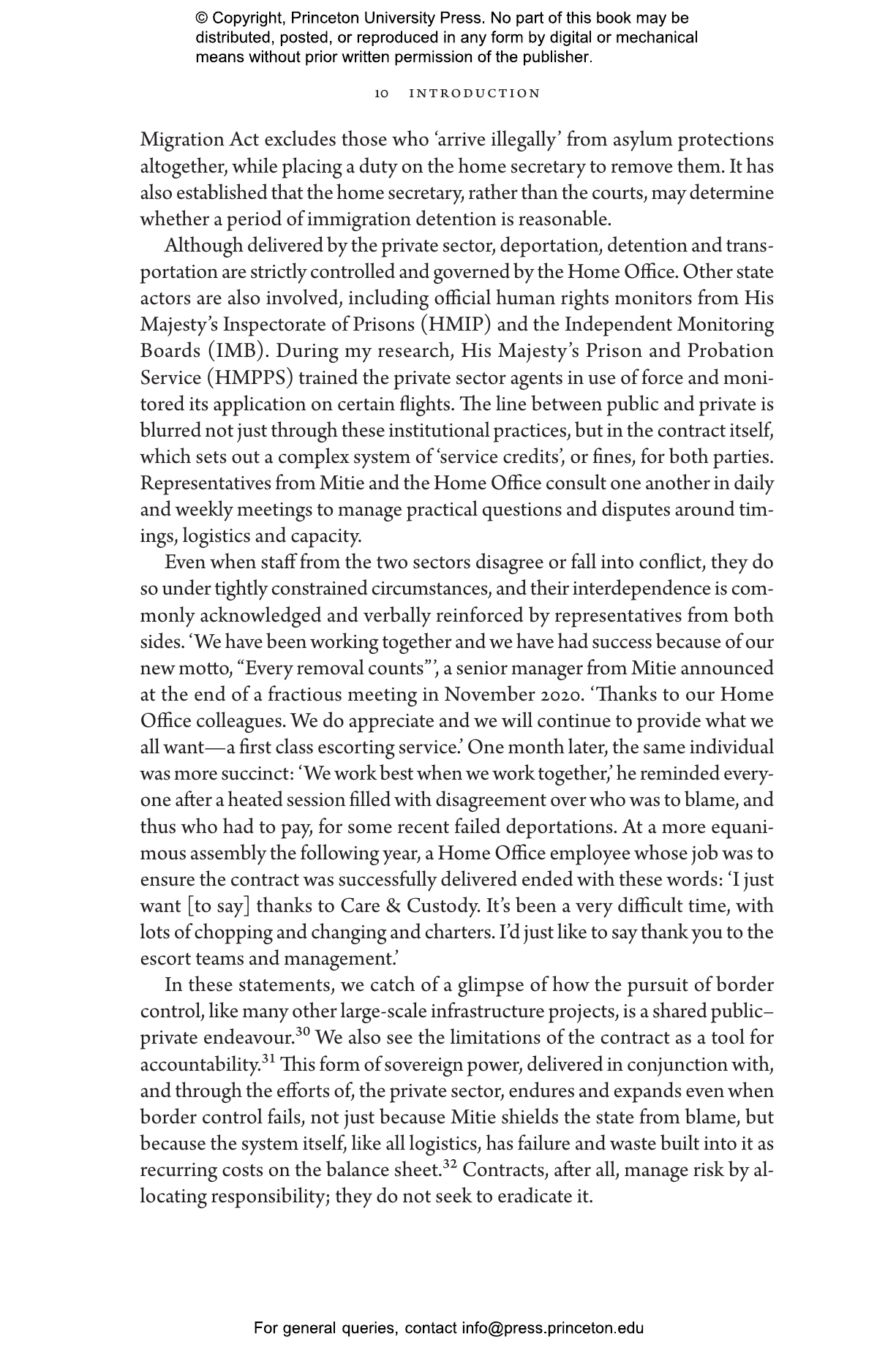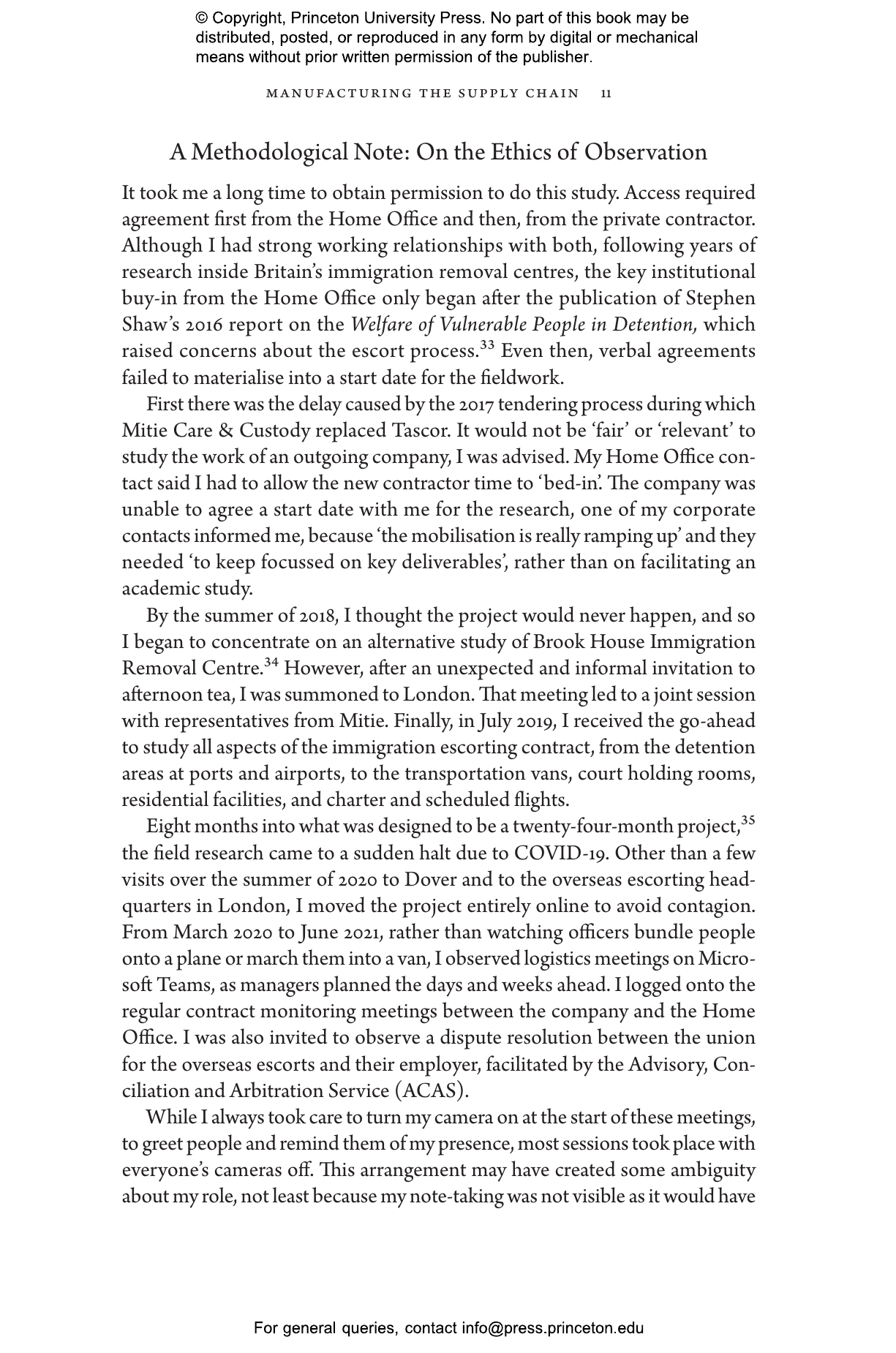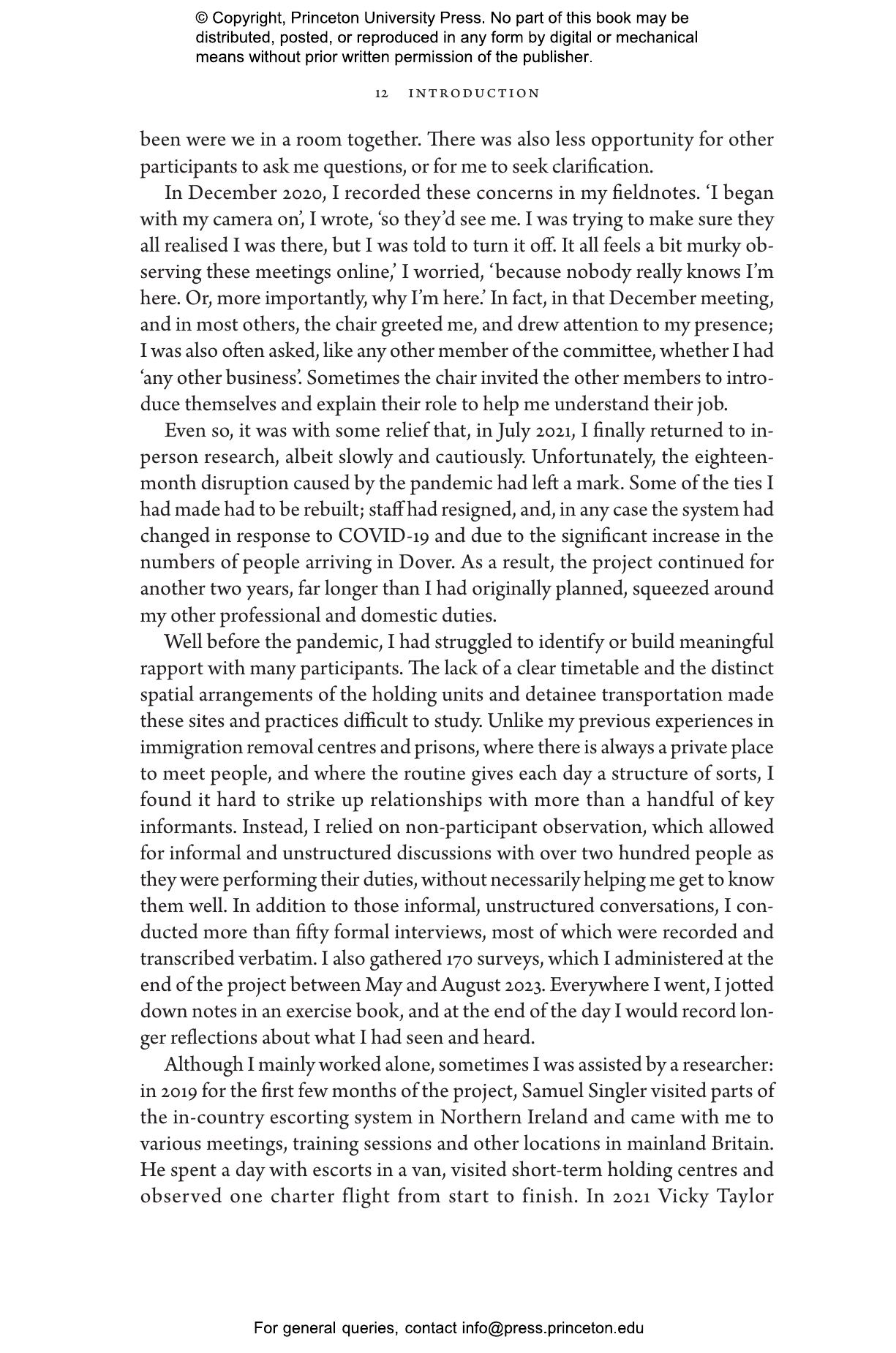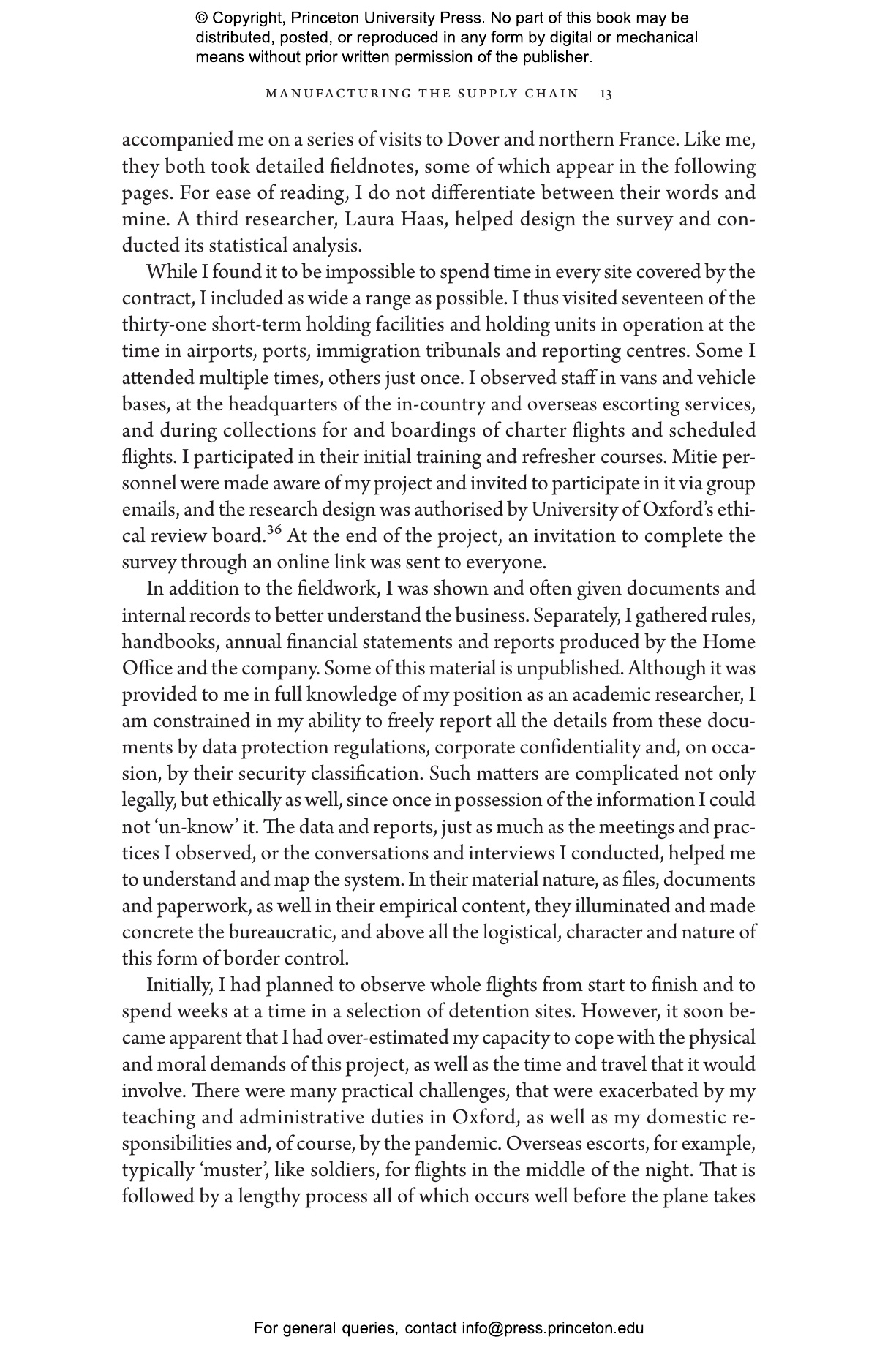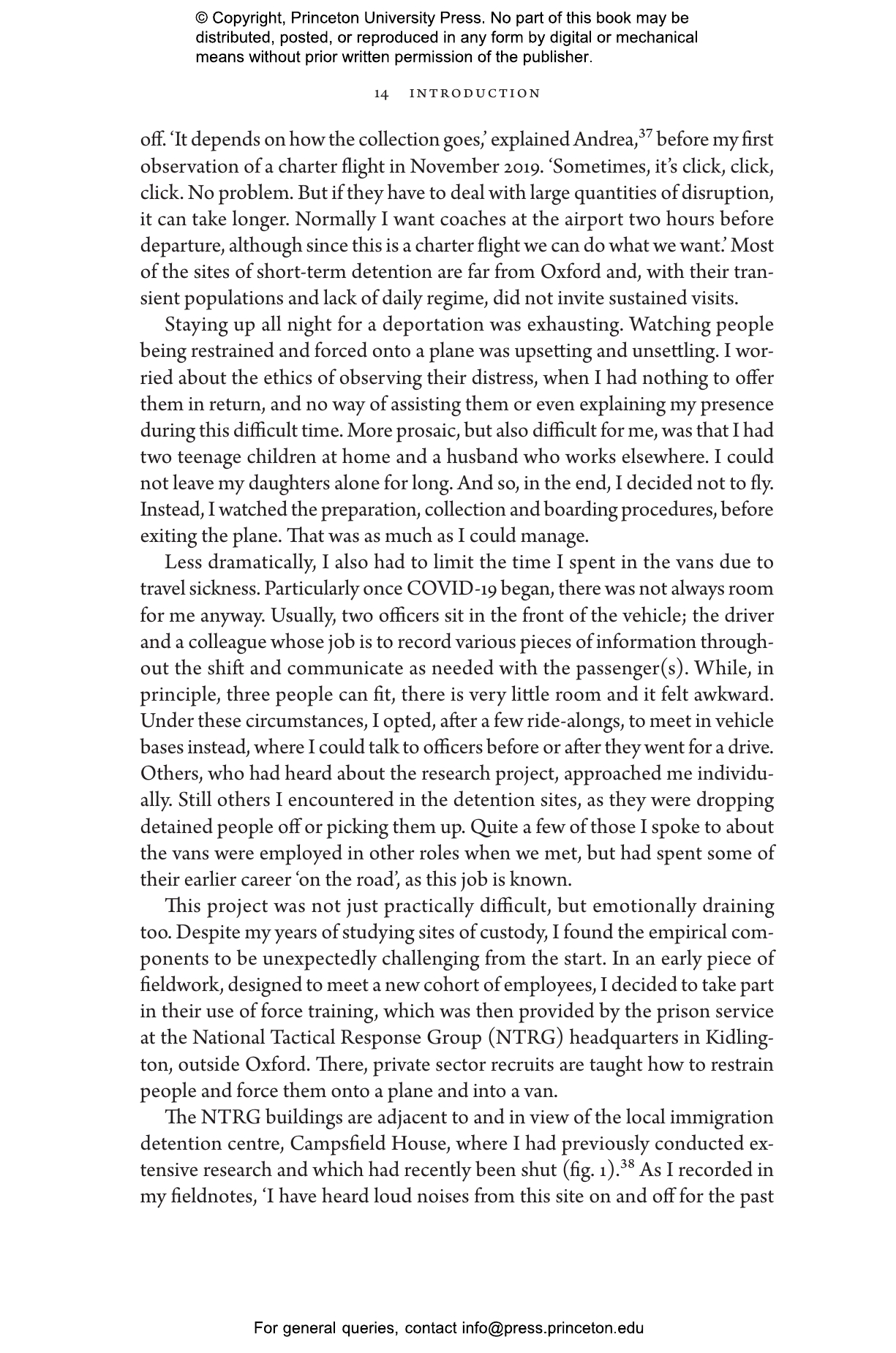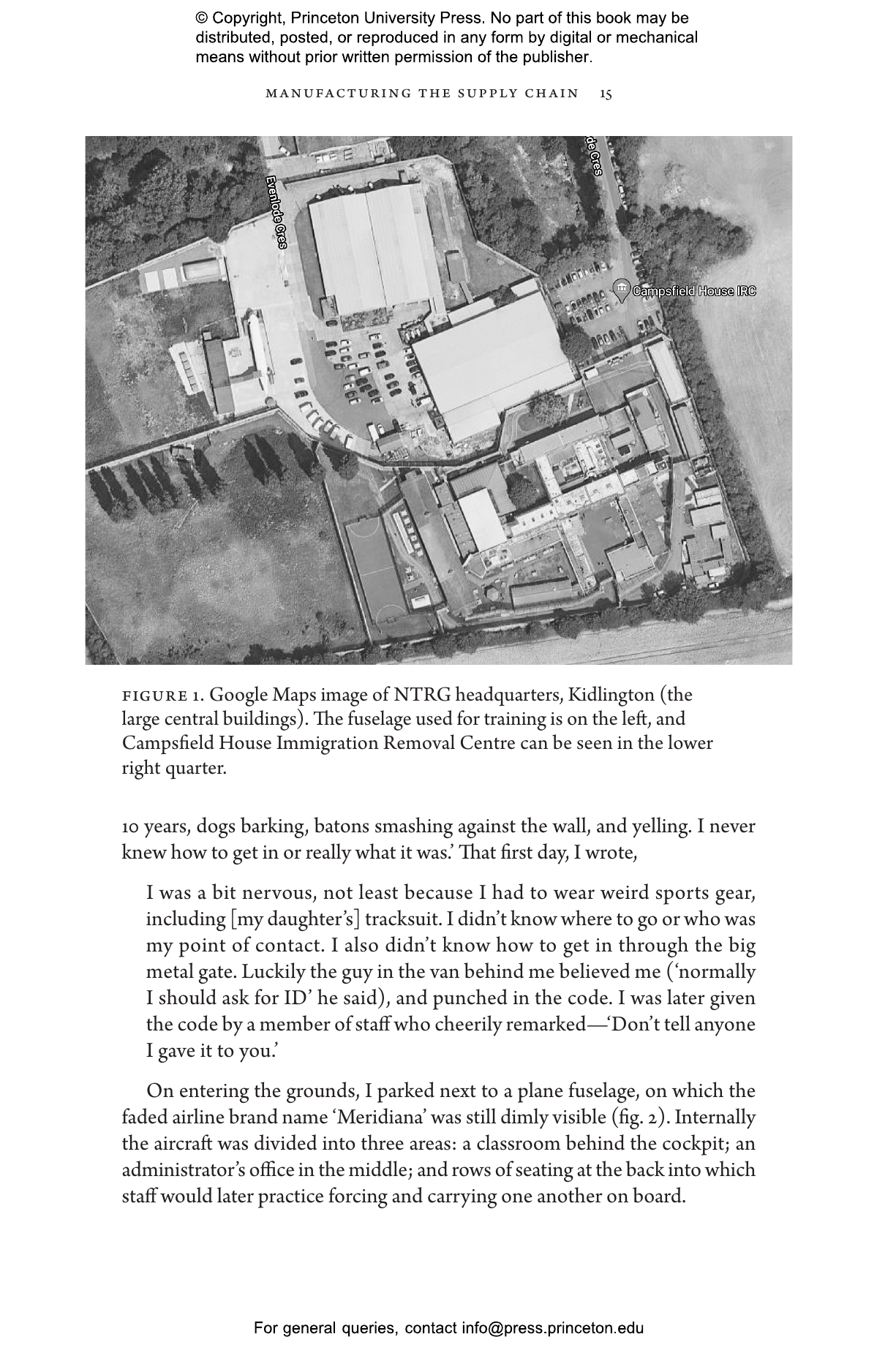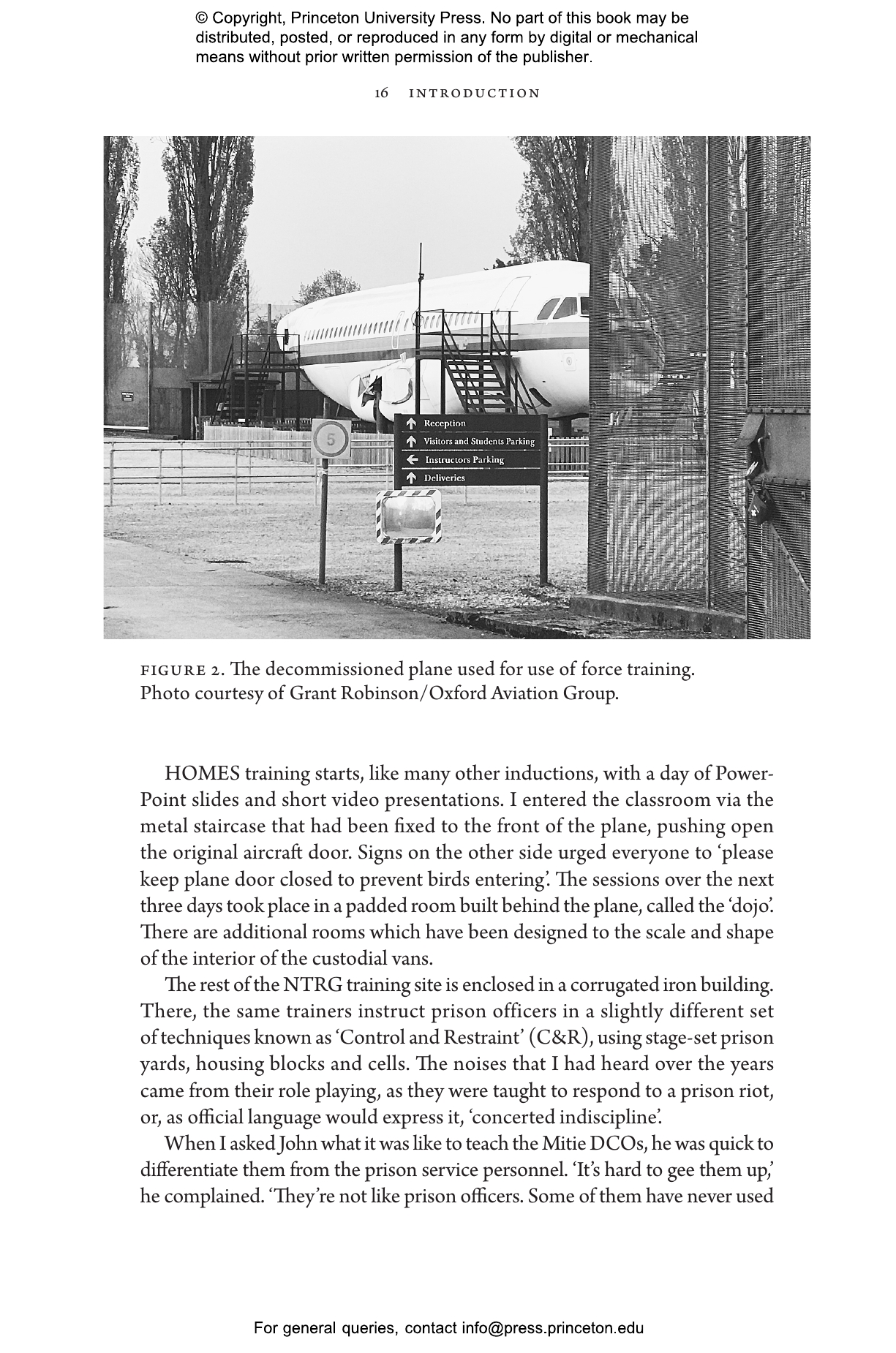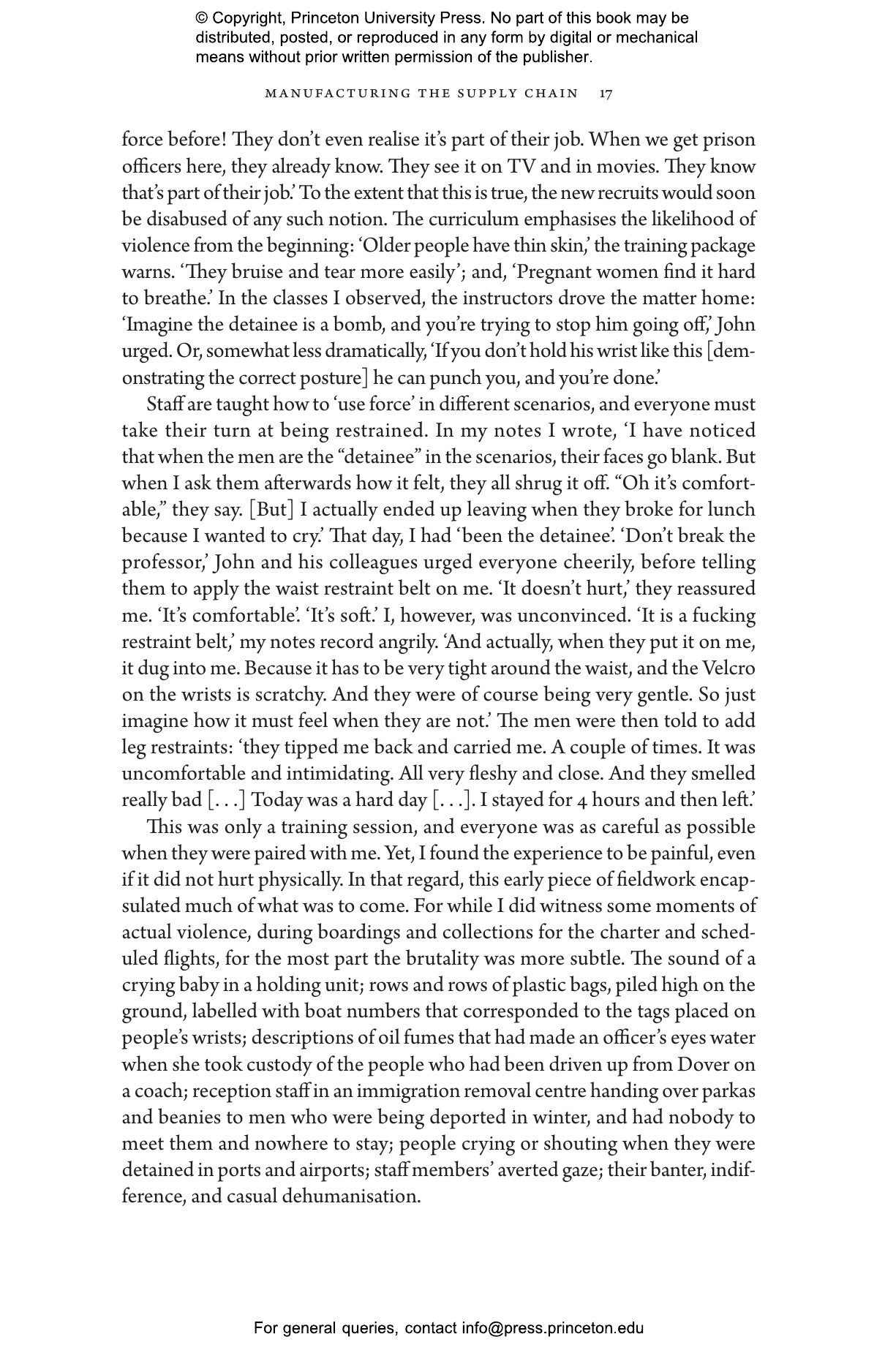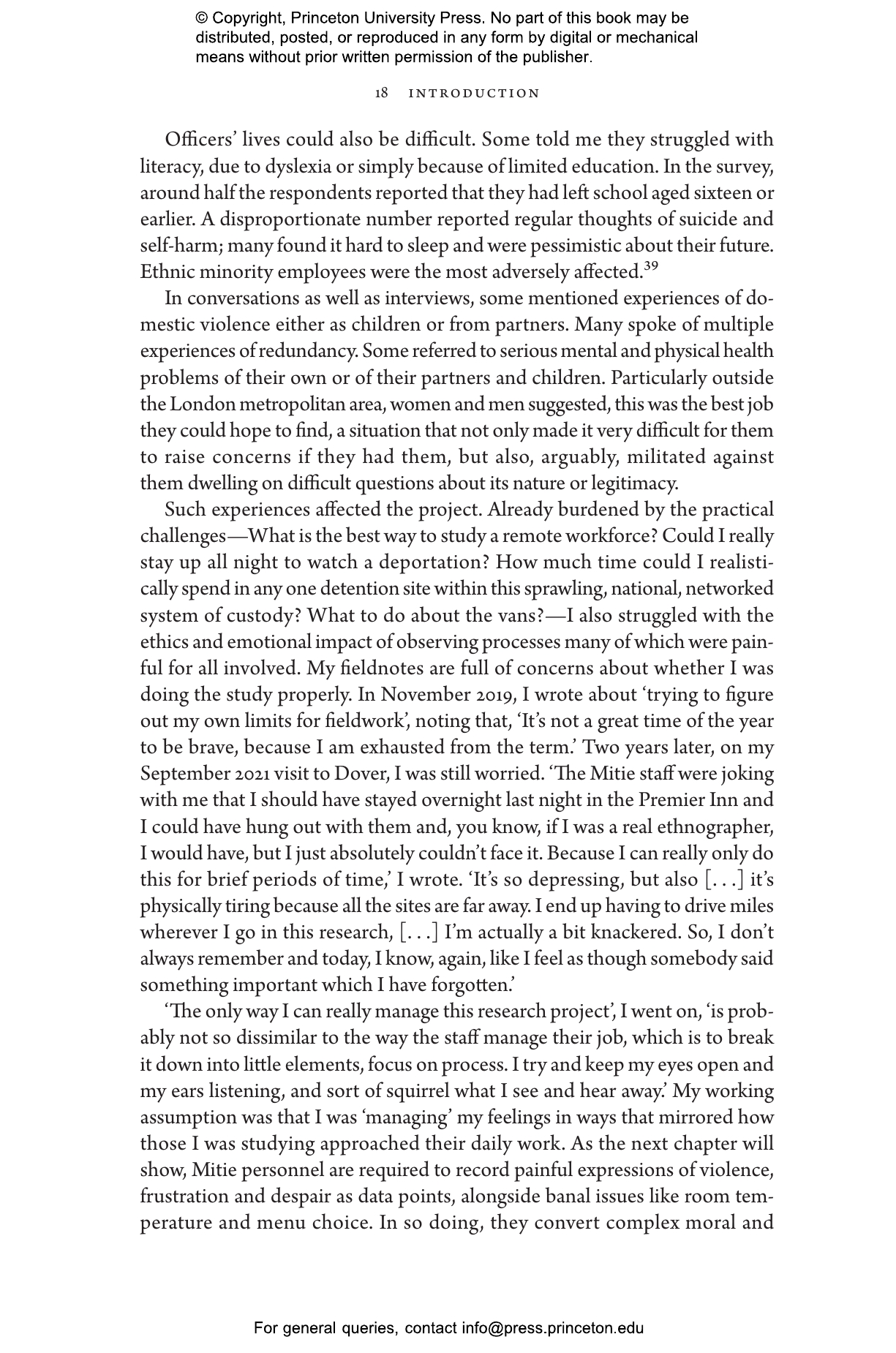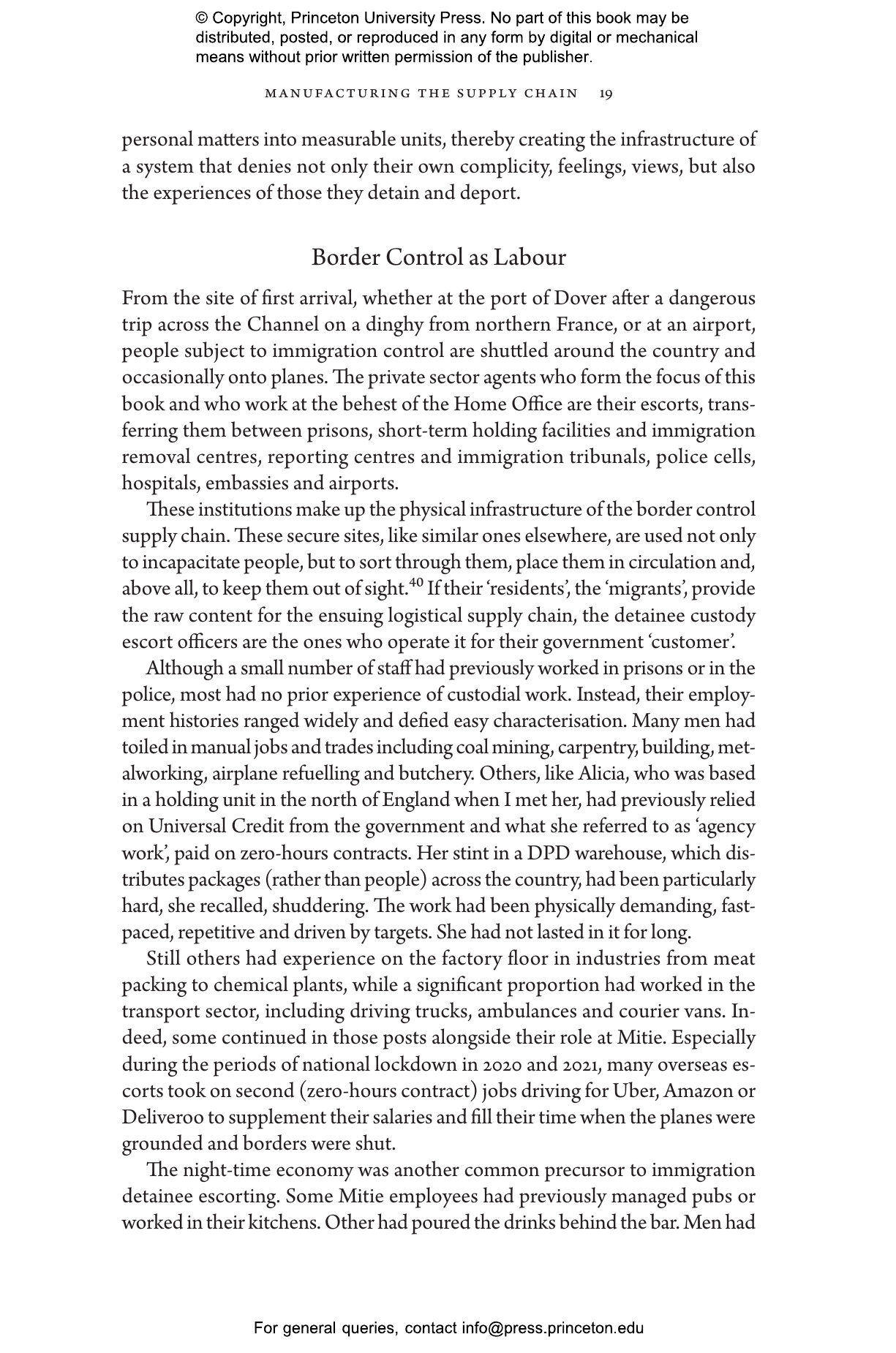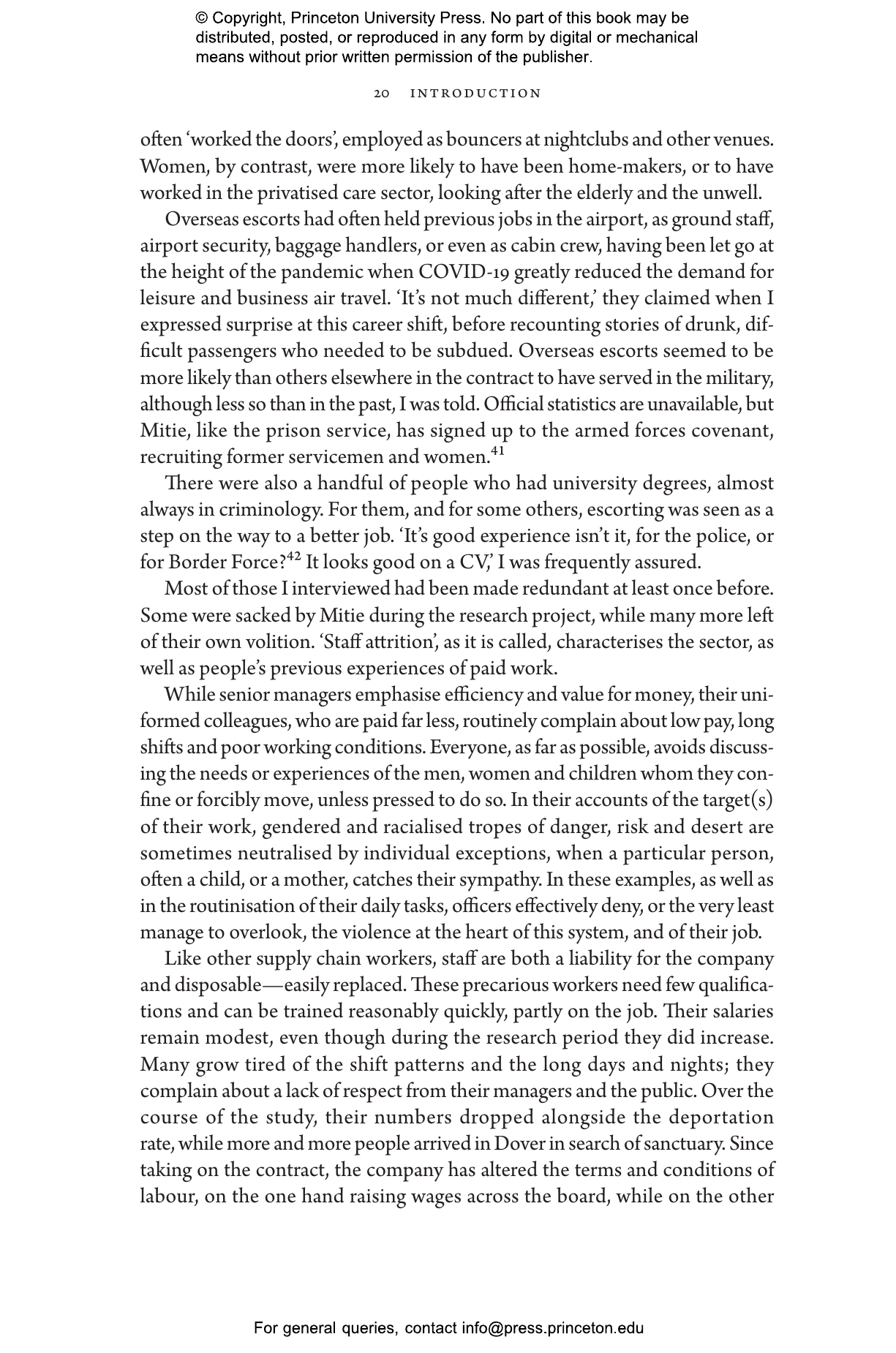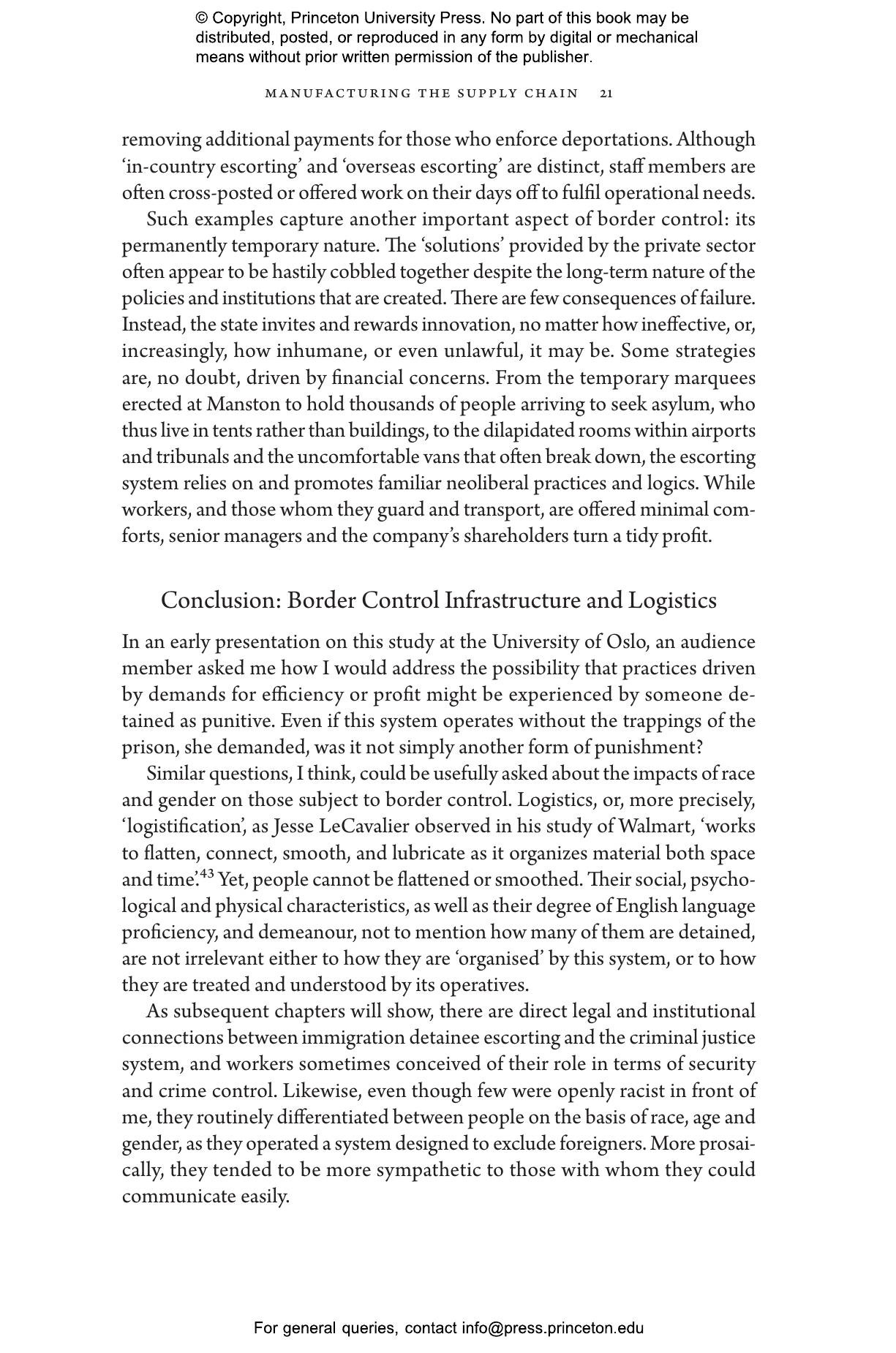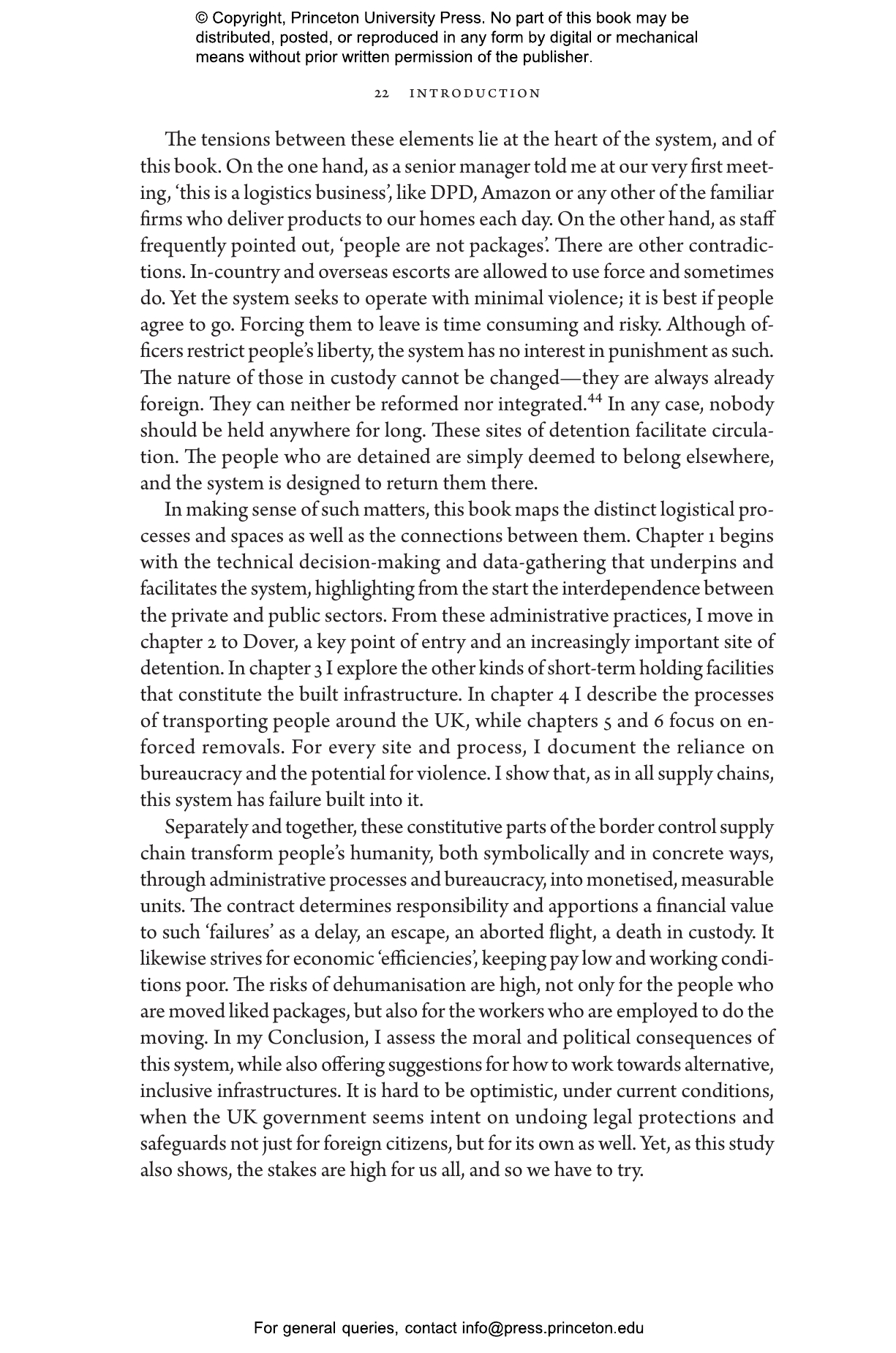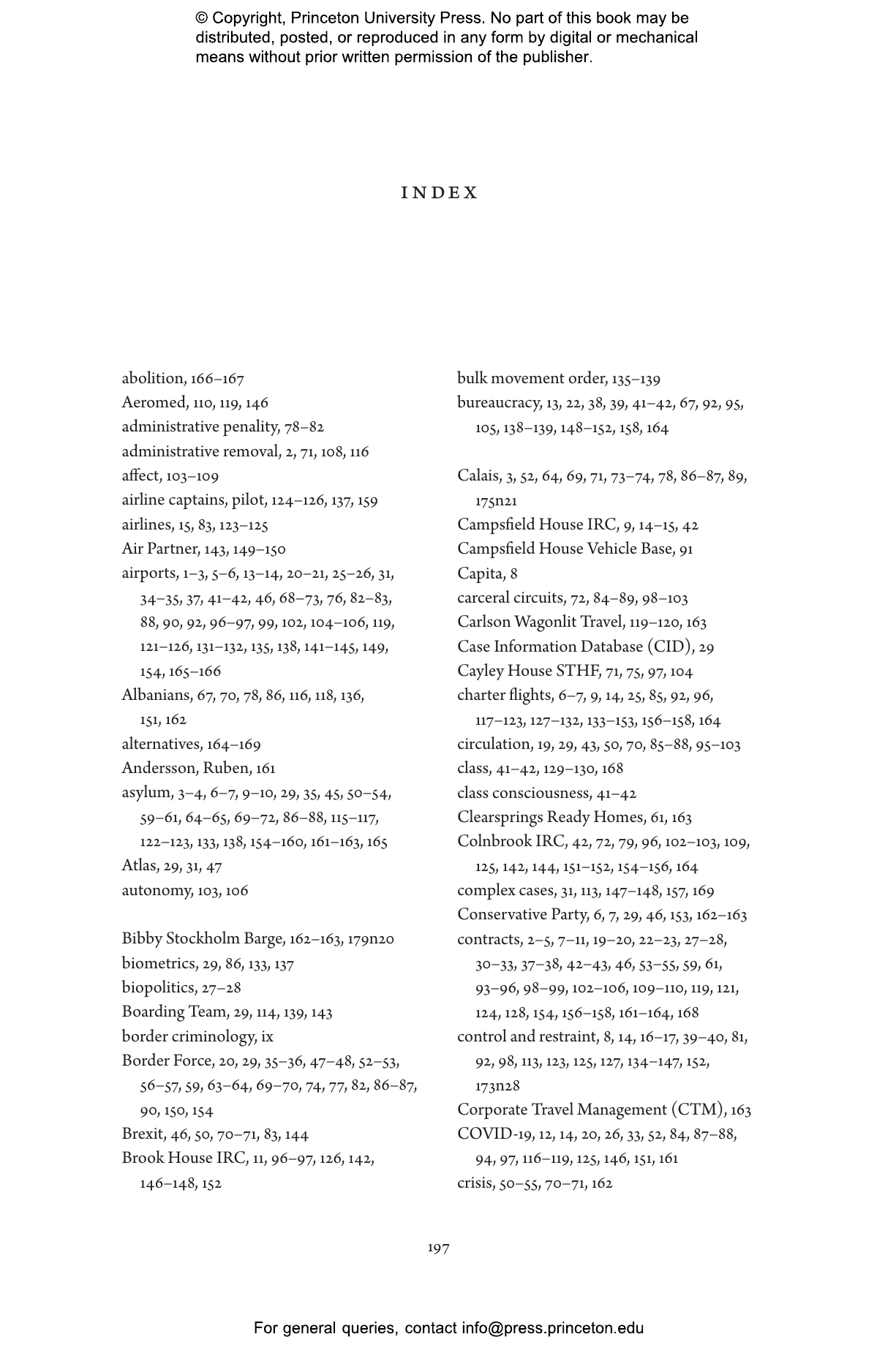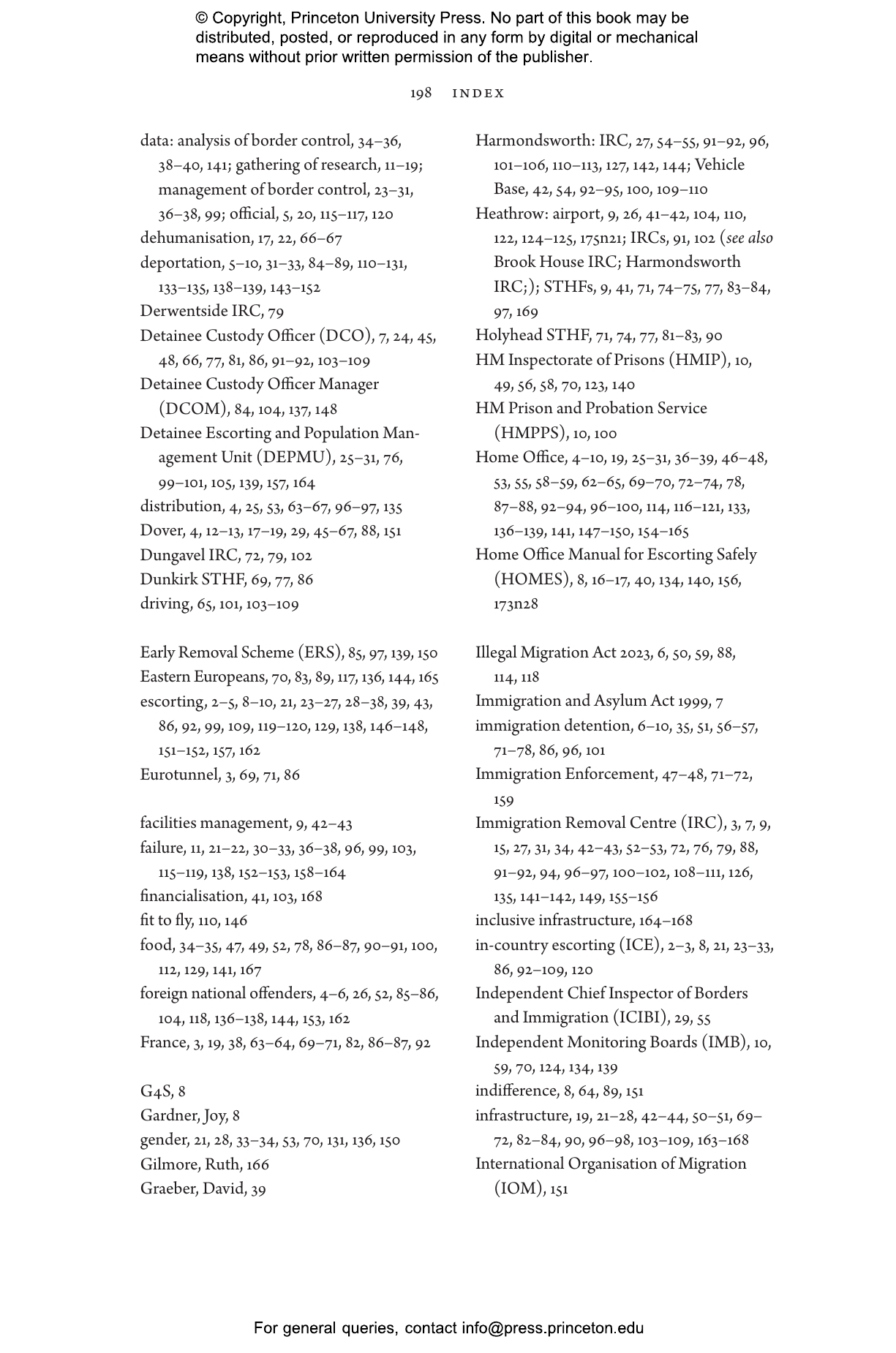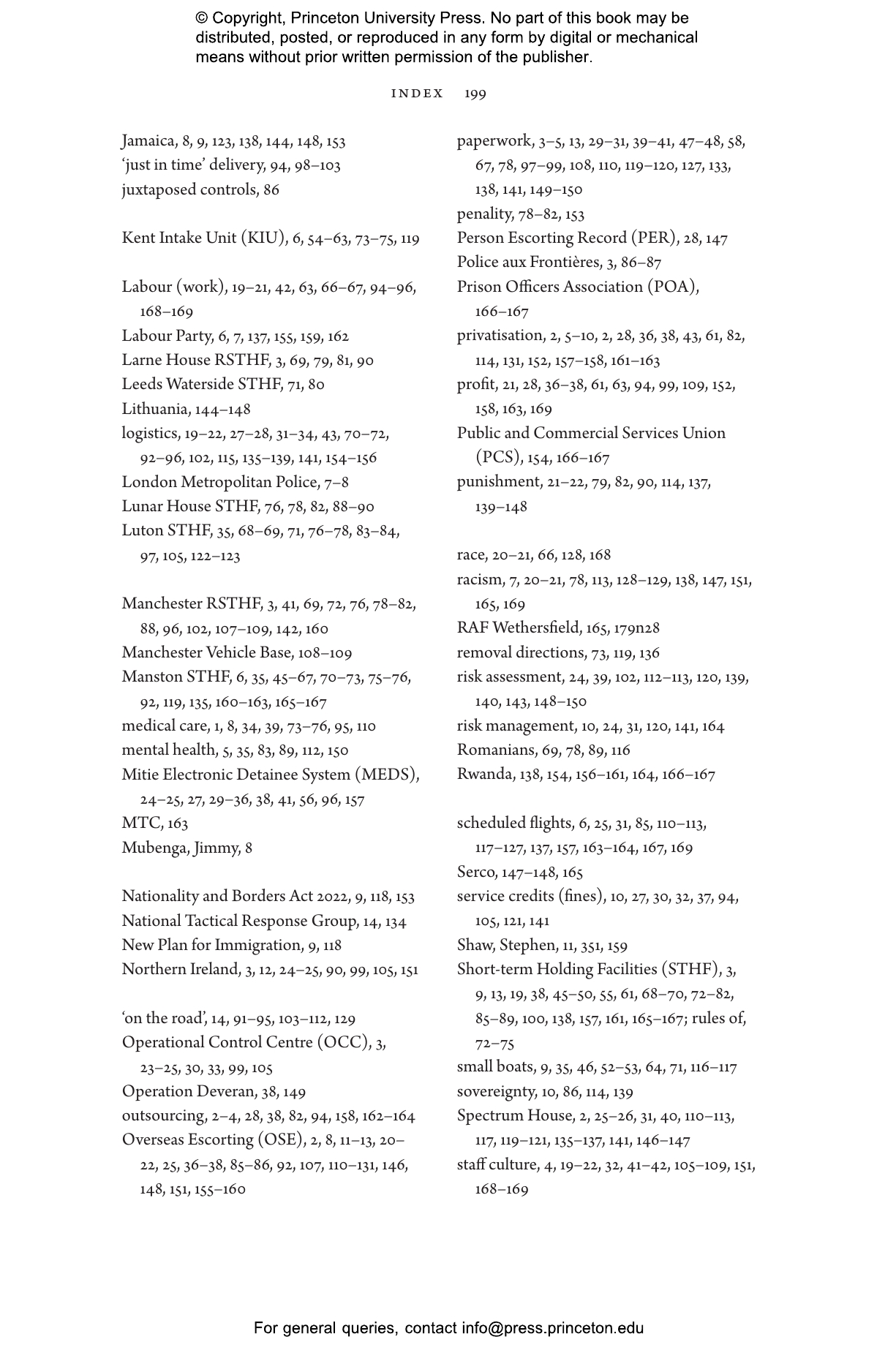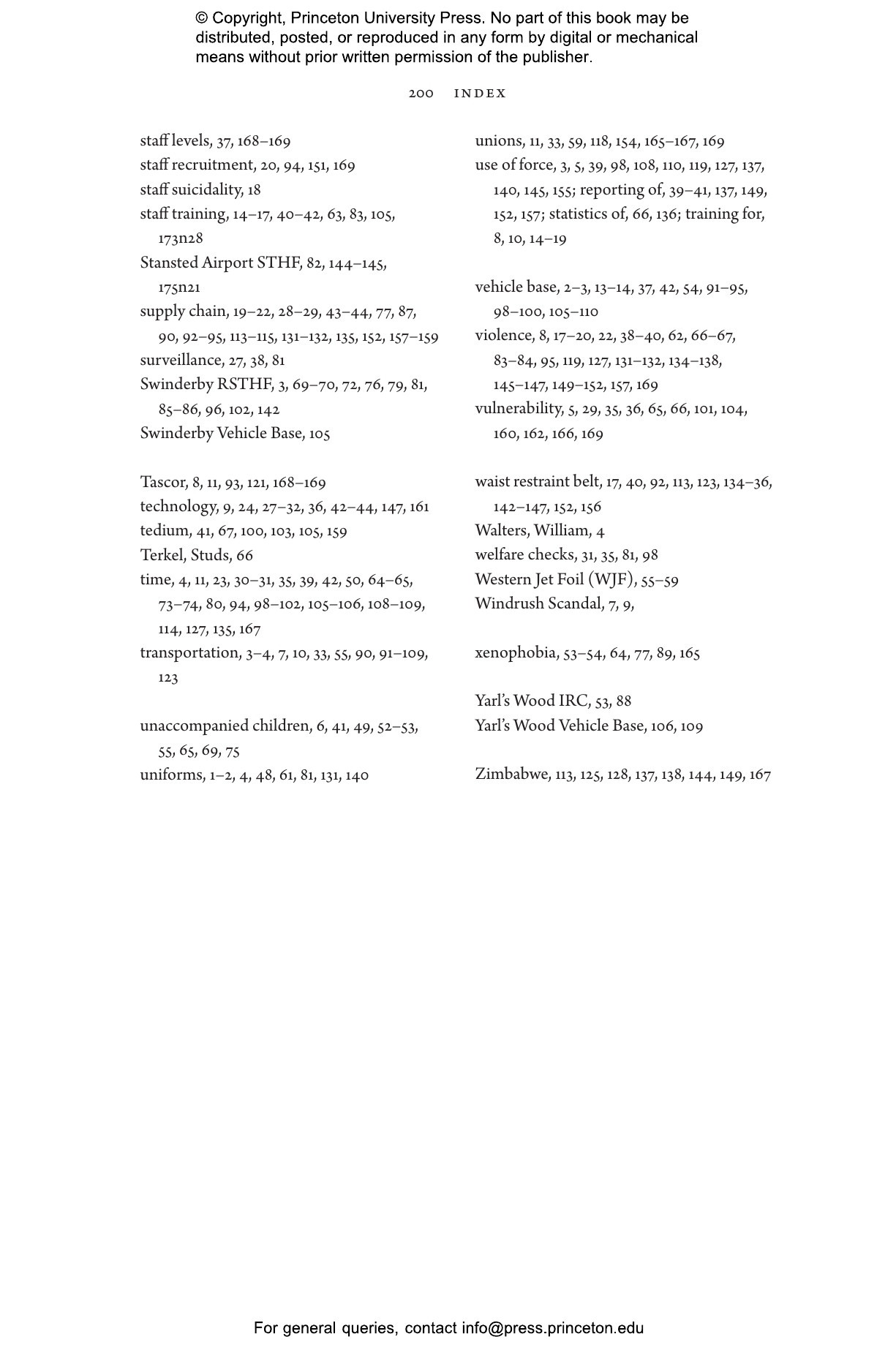In the UK’s fully outsourced “immigration detainee escorting system,” private sector security employees detain, circulate and deport foreign national citizens. Run and organized like a supply chain, this system dehumanises those who are detained and deported, treating them as if they were packages to be moved from place to place and relying on poorly paid, minimally trained staff to do so. In Supply Chain Justice, Mary Bosworth offers the first empirically grounded, scholarly analysis of the British detention and deportation system. Drawing on four years of extensive ethnographic research, Bosworth examines what keeps the system in place and whether it might be effectively challenged.
Told by a senior manager that “this is a logistics business,” Bosworth documents how the public and private sectors have built a supply chain in which people’s humanity is transformed both symbolically and tangibly through administrative processes and bureaucracy into monetized, measurable units. Like all logistics, the system has failure built into it. The contract does not seek to eradicate risk but rather to manage it, determining responsibility and apportioning a financial value to such “failures” as delay, escape, aborted flight or death in custody. Front-line workers and managers depoliticise and normalise their efforts by casting their duties in familiar bureaucratic terms, with targets, “service level agreements” and “key performance indicators.” Focusing on first-hand accounts from workers and lengthy observation and document analysis, Bosworth explores the impact of border logistics in order to ask what it would take to build inclusive infrastructures rather than those designed to exclude.
Mary Bosworth is professor of criminology and the founder and codirector of the research network and website Border Criminologies at the University of Oxford. She is the coauthor of Bordered Lives: Immigration Detention Archive and the author of Inside Immigration Detention, Engendering Resistance: Agency and Power in Women’s Prisons, Explaining U.S. Imprisonment and The U.S. Federal Prison System.
“This work is a stunning achievement. Bosworth counters the inhumanity of the setting she documents by bringing compassion and humility to this endeavour through her astonishingly powerful prose. Her narrative style compels the reader to be human and present, and thus, to join her in bearing witness.”—Catherine Dauvergne, author of The New Politics of Immigration and the End of Settler Societies
“This remarkable book shows how the outsourcing of immigration control in Britain transforms deportation into an industry in which the rule of logistics further dehumanizes precarious people. We know much about the sources of public demand for deportation. Finally, we have a book that uncovers its supply side.”—William Walters, author of State Secrecy and Security: Refiguring the Covert Imaginary
“This book is a substantial scholarly contribution. It provides a wealth of new, original data, and has the potential to expand collective understandings of deportation processes and logics. I am not aware of any other book that offers this sort of detailed mapping of the logistics of deportation—whether in the UK or elsewhere.”—Jennifer M. Chacón, Stanford Law School
“The contributions of this book are manifold. It is a significant work in terms of the research access and the data obtained, which is impressive given the secrecy surrounding these processes, and all the more valuable given the scarcity of research in this specific area of practice. The fact that it is focused on processes of outsourcing and public-private partnership is particularly unique, given that much of the work on borders focuses on the state. In doing so, the book fills a significant gap in the field, which for so long has denounced privatisation and outsourcing without exploring these processes analytically and empirically in sufficient depth.”—Ana Aliverti, University of Warwick


